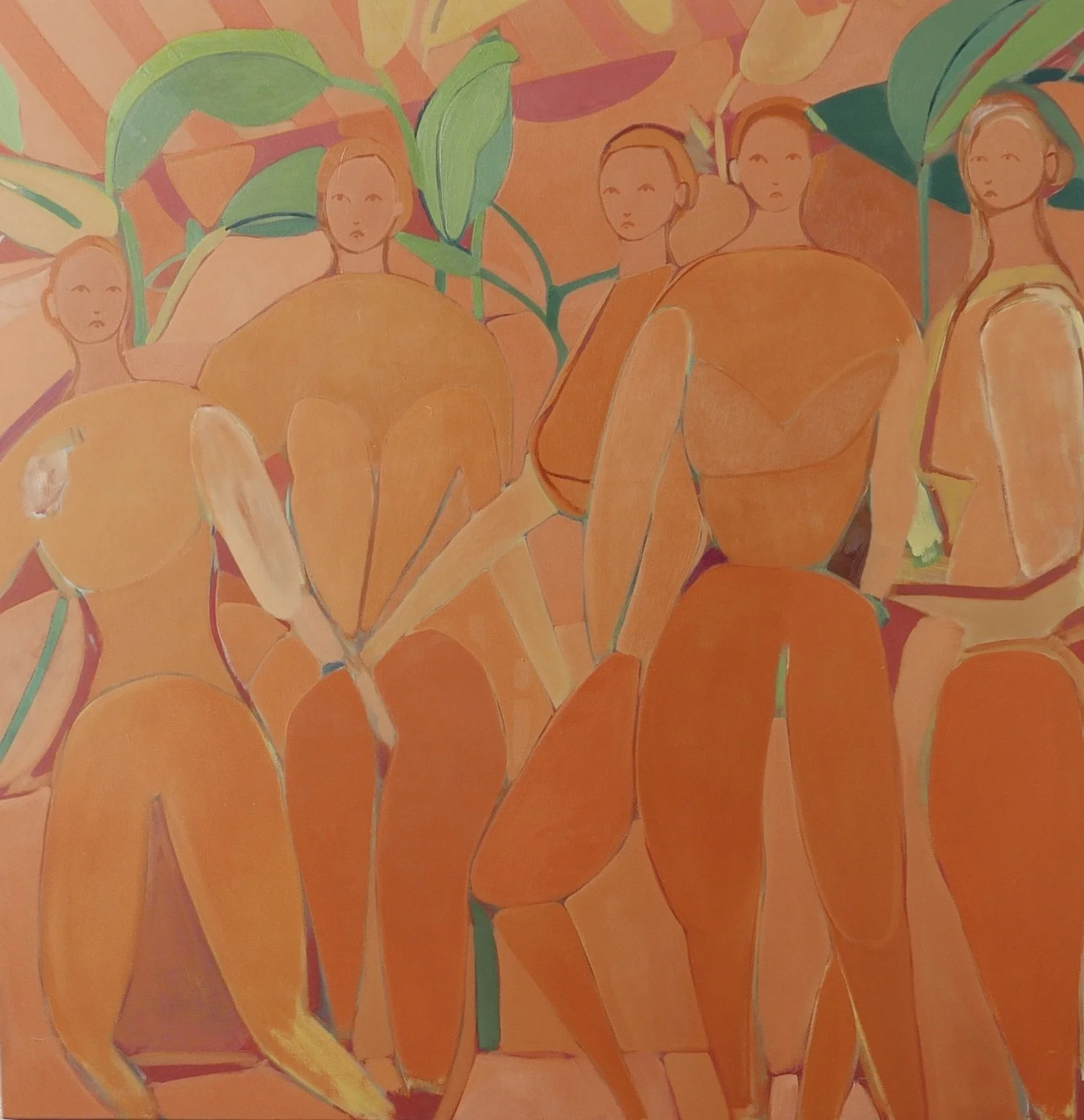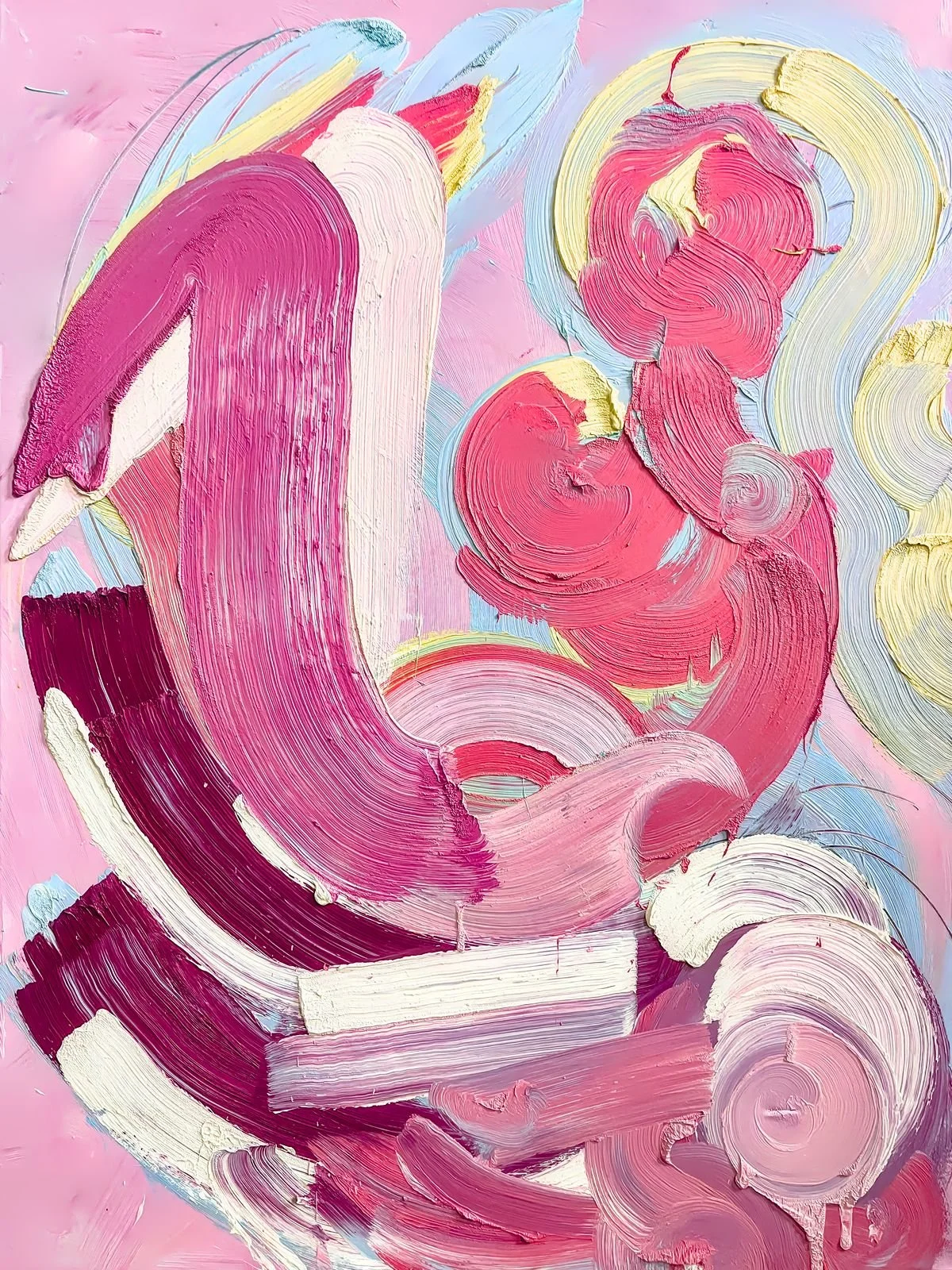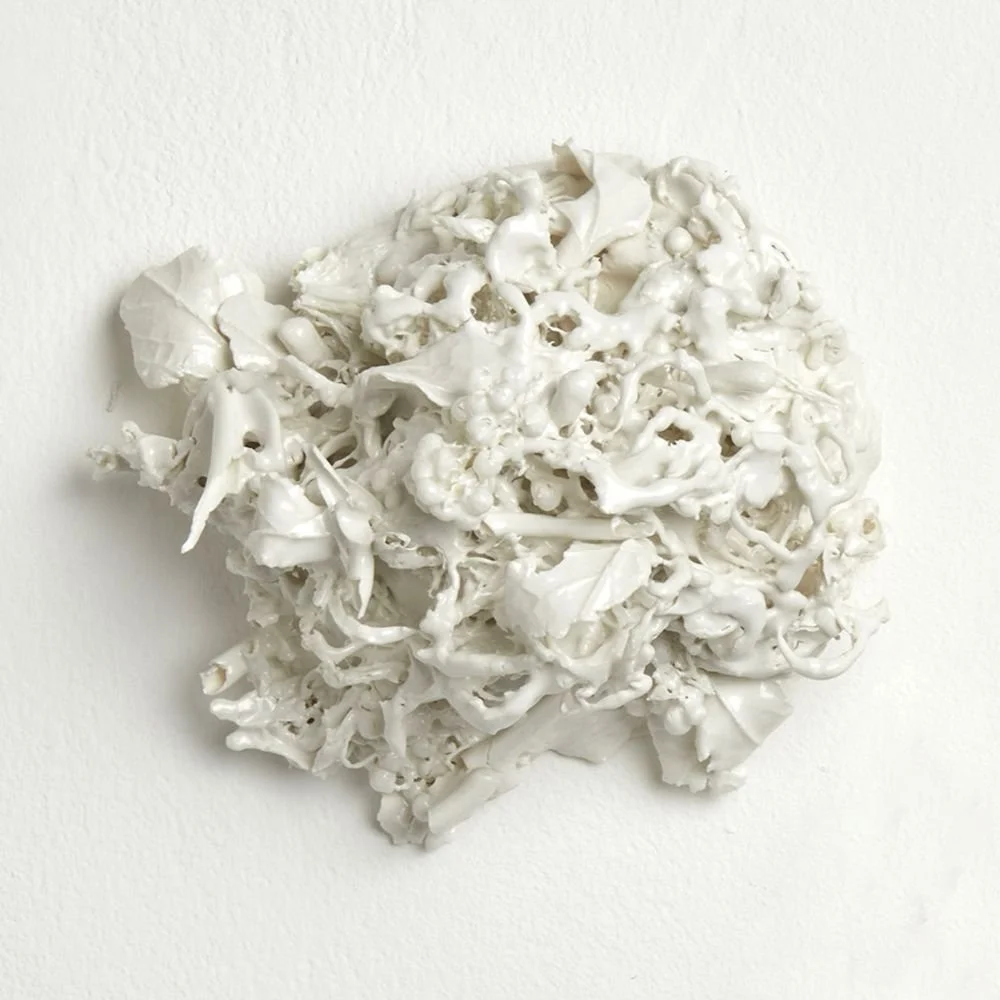Exhibiting Artists
Sophie Bayntun
Sophie’s career has evolved from working as a successful chef to pursuing her first love: painting. The artist’s lyrical works often depict women, dining or drinking, alone or in company; her protagonists are convincingly portrayed as enmeshed within their environments. Sophie perceives her work as channeling abstracted corporeal emotions, whether this manifests as feelings of longing, dreaming or nostalgia.
Helen Beard
Helen Beard’s career as an assistant art director in the film industry is reflected in her fine art practice. Her arresting work vibrates with movement and pulses with brilliant colour in a celebration of desire and the erotic experience. Twinning her distinctive vibrant palette and ever-changing framework of close crops and wide shots, Beard is adept at creating a landscape of heightened drama, joyful exuberance and poetic intimacy.
Jyll Bradley
Jyll Bradley's rich practice encompasses drawing, photography, film, radio and large-scale public artworks. Light is a vital element running throughout her work which she uses to investigate ideas of belonging, identity and place. In preparing for a recent survey exhibition, Bradley discovered self-portraits taken as a young artist in the 1980s, which she chose not to show at the time. Bringing them to light again has given rise to her thinking about the 'second life' of artworks. The idea that by looking back, we also look forward and that we may only fully understand the significance of our own creative paths through the arc of time.
Wesley Eberle
The richly gestural language of Wesley Eberle has an almost musical cadence, such is the ebb and flow of his vibrant paintings. Hovering at the borders of figuration and abstraction, the works give physical form to Eberle's ‘other life’ as a senior political and communication consultant. His work shapes his paintings in a very real sense in that they mirror the rapid or protracted ‘back and forth’ of verbal communications in political and financial realms and trace patterns to the charting of unfolding world events.
Maryam Eisler
Maryam Eisler’s exquisite photographs centre around the sublime feminine. The artist casts her subjects against spartan landscapes and curvilinear architecture - specific sites and grounds that she seeks out in order to evoke a tangible sense of calm, inner purity. Contextualised in this way, Maryam’s female nudes point to a bold, uncompromising portrayal of the feminine and a free-thinking sense of self. The artist’s extensive writing, editing, marketing and film-making background are patently evident in each of her meticulously considered photographic responses to her subject matter and bring a rich, uncompromising focus.
Nicole Farhi
Farhi studied art and fashion in Paris in the late 1960s. Her career as a fashion designer took off so quickly that she put art aside for a few years, but after launching her successful fashion label in 1982, she started studying sculpture. In the 1980s, she met Eduardo Paolozzi, who became her friend and mentor until his death. From then on, Farhi knew she would turn to sculpture for the rest of her life. Second Lives features works from Farhi’s latest SHAPESHIFTING series, which depicts delightfully tactile figurative forms. Their smooth surfaces and serpentine curves are seductively inviting, but the works also resist easy assimilation as they pivot on an axis between the paradoxical human desire to reveal and conceal.
Davina Jackson
Davina Jackson studied at London’s Royal Academy Schools where she was awarded the Gold Medal for painting. Recently Davina has been shortlisted for the John Moore’s Painting Prize. Davina’s work explores emotion, memory and introspection, simplifying form to examine everyday moments of stillness to focus on the reflective responses to daily routines. Davina’s work speaks to her own life choices – with long pauses in her creative practice due to the practicalities of raising 3 children. At the same time, she navigated the life-altering challenge of a breast cancer diagnosis and treatment schedule. Creativity became more internal – something she carried quietly inside her. Now her children are older and more independent she is finding a new rhythm in her life where her creativity is entering a new season.
Kate Jackson
Kate Jackson is a visual artist, singer and songwriter, and former lead singer of The Long Blondes. Inspired by hours of staring out of a tour bus window as a musician in her 20s she now observes the urban landscape in search of a lost utopian future that never quite came to pass. Brutalist architecture, motorway flyovers, factory buildings and bus stations: she captures moments in time that when painted become trapped. These paintings are acts of preservation, exploring trace, memory, nostalgia and sense of place as well as challenging our concept of beauty.
Lucille Lewin
Also turning to sculpture from a career in fashion is Lucille Lewin, former Creative Director of Whistles and Liberty London. Lewin’s sculptures are inspired by the evolution of the human experience through time. Her chosen materials reflect the beauty of Chinese porcelain that has been ruptured, allowing an organic creation of form. Fractured, bleached and possessed of a very particular aesthetic, the work reflects what the artist describes as ‘the interdependent chaos we have created’. She describes her sculptures as both personal and political: abstractions alluding simultaneously to figure, environment and architecture, but though this is an entirely new chapter in her working life, the artist acknowledges that the narratives in her work stem from past experiences.
David Rae
David Rae’s evocative panoramic vistas lie somewhere between utopian idylls and dystopian re workings of landscape and planning. The paintings reflect the artist’s ideas around the possibility of unspoken narratives via realism and subtraction. There is a remarkable sense of space created through the realistic rendition of textures and perspectives - as if conjuring up an unfinished story or truth hidden in the re modelled but still extant landscape. David’s work speaks to the beauty of the environment whilst promoting a sense of disquiet drawn from deliberately analytical observations. His years working in art logistics: overseeing, examining and handling art and artefacts with painstaking care - have informed his paintings, which reveal a forensic attention to detail.









